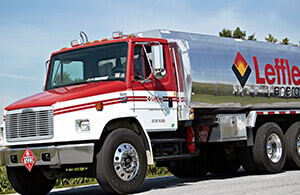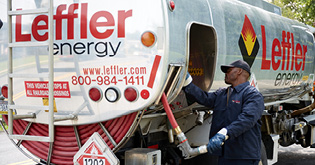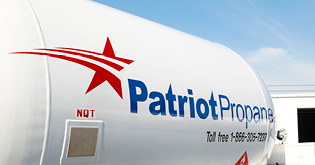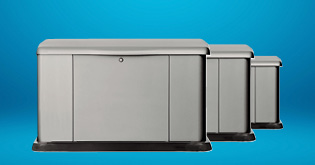
Oil vs. gas - facts vs. fiction.

By choosing oil to heat your home, you're already making a smarter decision than converting to another fuel source, like natural gas. But don't just take our word for it, the facts vs. the fiction about both fuel sources really do speak for themselves:
FICTION: Heating oil supplies are running out.
FACT: Heating oil supplies are more plentiful than ever!
Oil and petroleum reserves around the world remain very high. Even if there is a shortage elsewhere, the US is not dependent on imports or any one source for supply. There are 727 million barrels in the Strategic Petroleum Reserve and approximately 2 million barrels in the Northeast Heating Oil Reserve alone.1 Renewable biofuel options are also adding to an already substantial and sustainable supply. Natural gas consumption is also rising, leading to concerns that domestic production will not be able to keep pace with demand. Natural gas also isn't renewable and since most of the world's natural gas reserves are outside the US, relying on imports is a real possibility in the future.
FICTION: Heating oil is not as clean as natural gas and is a 'dirty' fuel.
FACT: Heating oil is a very clean fuel.
Today, oil produces almost zero emissions and the latest oil system technologies 'reburn' fuel, lowering emissions even further. Developing technologies are also embracing lower sulfur oil blends that, when mixed with biofuels, create an even cleaner heating oil option. And, if a heating oil system is properly maintained, it burns cleanly. Any soot that it creates remains only inside the tank. With a methane content of 95%, natural gas system losses account for 18% of total global methane emissions, a powerful contributor to global warming and climate change.1

FICTION: Heating oil is not as safe as natural gas.
FACT: Heating oil is very safe!
Heating oil doesn't ignite until its temperature reaches 140 degrees, when it vaporizes. So, if you dropped a lit match into heating oil, it's like dropping it into water, the flame extinguishes on contact. And, unlike natural gas, you normally have warning signs of an oil system breakdown, like smoke, odors or soot. Natural gas is also explosive and leaks are a leading cause of carbon monoxide deaths. 3
FICTION: Natural gas provides options to manage and control your fuel supply.
FACT: You have much more control and service options with heating oil.
Normally, natural gas comes from one big utility which gives you limited choices when picking your provider. Heating oil providers provide you with much more options, management and control of your fuel supply. You choose which company you want to be your provider, how much and when you want to buy it or have it delivered. You also have control of your supply as it's stored on your own property.
FICTION: There are less service and supply issues with natural gas.
FACT: You are less likely to have service or supply problems with heating oil.
Unlike natural gas, where a pipeline incident or leak could disrupt service or endanger your home, an oil tank stores your own independent supply safely. It’s a supply that you can monitor and control with far less opportunity for service disruption.
FICTION: Heating oil systems have a short lifespan.
FACT: Heating oil systems have a longer life than natural gas systems.
The average life expectancy of an oil heat appliance is 30 or more years if they are properly maintained. The average life expectancy of a natural gas furnace is only 11-14 years. And, the efficiency ratings of new heating oil systems range from 83% to 95%.
FICTION: Natural gas provides a plentiful hot water supply.
FACT: You get a more plentiful hot water supply with heating oil.
The hot water recovery rate of an oil-fueled water heater is twice as fast as a natural gas water heater and three times as fast as an electric water heater.4
FICTION: The heating oil industry isn't innovative as natural gas.
FACT: Heating oil technologies have never been more innovative.
 The latest
technologies are helping heating oil systems, and the fuel itself, to constantly evolve for even cleaner, more efficient and environmentally-friendly options. These improvements have helped the average oil heated home cut consumption by 33.6% over
the past 30 years.1
The latest
technologies are helping heating oil systems, and the fuel itself, to constantly evolve for even cleaner, more efficient and environmentally-friendly options. These improvements have helped the average oil heated home cut consumption by 33.6% over
the past 30 years.1
The greatest fact and biggest benefit of heating oil is that providers like Leffler Energy, gives you more much more options to manage you energy costs. Energy costs naturally fluctuate and those costs also include natural gas! We're just as concerned about your energy savings as you are, which is why we provide a range of flexible pricing plans to protect your heating oil price and we offer payment options to help spread your annual heating oil costs throughout the year. A natural gas supplier may not have the same range of options to help you save. You can also count on us for the latest, energy-efficient heating oil systems that you need to help you save on home energy costs now and for years to come.
Leffler Energy can also of any home heating system, whether fueled by oil, propane or natural gas. Unlike natural gas providers, Leffler Energy also can take care of tune-ups, has a range of service plans and is there for you 24/7 in any weather.
Now that you've cleared up the facts vs. fiction about both fuel sources, you can see that heating oil is still one of the best options to fuel your home.
1 Source: AmericanEnergyCoalition.com
2 Source: Energy Answers Today - Your Guide to Economical & Efficient Home Heating Brochure by Primedia
3 Source: Energy Answers Today Pocket Guide by Primedia www.energyanswerstoday.com
4
Source: cityfuel.net





